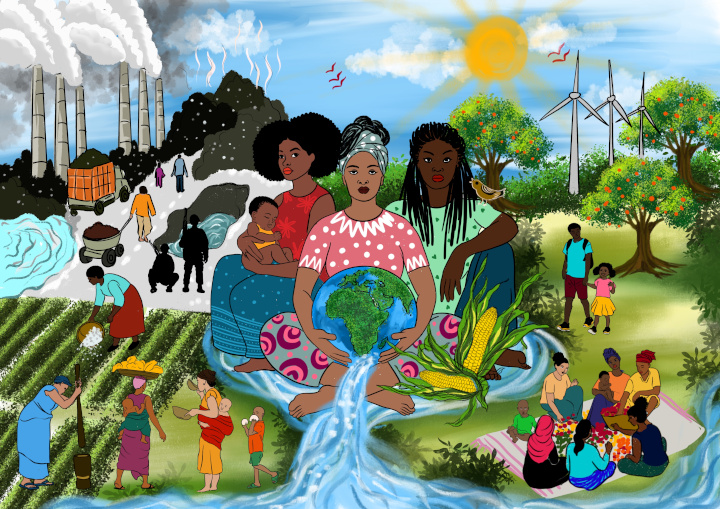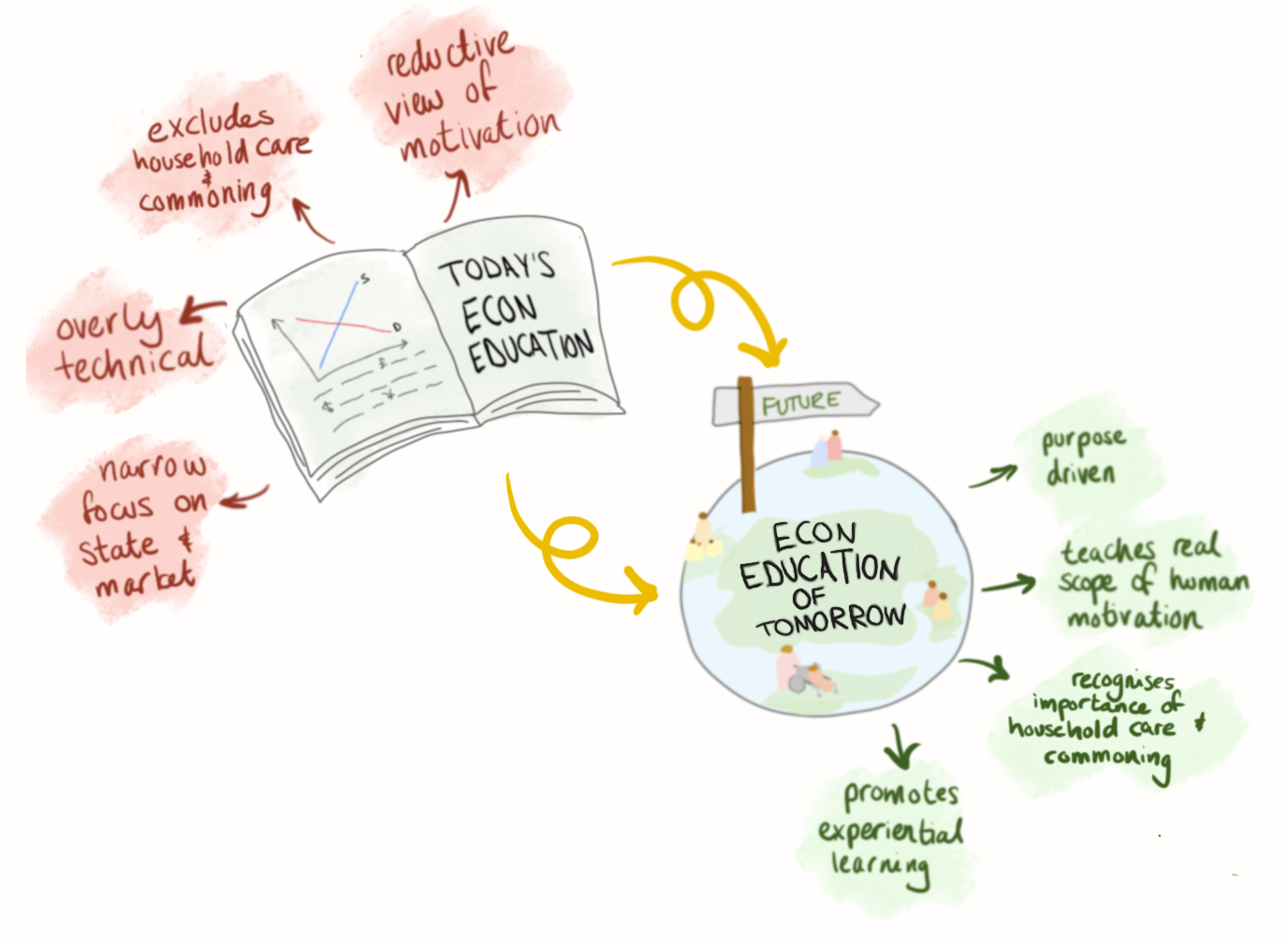
December 20, 2024
The world needs to stop relying on a metric that ignores two thirds of the work done by women and which promotes harmful policies, says Oxfam GB CEO Halima Begum. A new collection of feminist think pieces offers a compelling and inspirational tour of the arguments and pathways for moving Beyond GDP.
Read more >>

Want value for aid money in fragile contexts? Then trust local actors and systems
December 11, 2024
Local actors can deliver programming that is up to 32% more cost-efficient than international ones, one study suggests. Yet, particularly in fragile contexts and conflict zones, international actors still seem reluctant to localise. Economist Sophie Pongracz looks at cash transfers to explain why it’s time for the humanitarian sector to take a proper look at the evidence on cost-effectiveness.
Read more >>

It’s time to put care at the centre of our economics courses
November 19, 2024
The UK government’s Francis Review of the English school curriculum is an unprecedented chance to shift the national and global conversation on economics education: let’s not miss it, say Alex Bush and Jennifer Brandsberg-Engelmann. They explain why we need to change an economics curriculum which perpetuates narratives that are bad for people and planet and erase care work.
Read more >>
*New*: #PowerShifts Resources
May 2, 2019
Remember a month ago we told you about an exciting new project we’ve launched and asked all of you to suggest names for it? After many debates, confusion, over-thinking, we have it. Because this exercise that FP2P is embarking on implies shifting the power of who’s talking, what we’re talking about, how we’re talking about it, and acknowledging all of
Read more >>
World Inequality Report 2018: 3 insights and 2 gaps
June 13, 2018
I was a discussant at the London launch of the World Inequality Report 2018 last week by the WIR team’s Lucas Chancel. (The book, that is – the online version was released in December) The WIR is produced by a team of economists who contribute to the WID.world database, of whom the biggest rock star is Thomas Piketty. The database
Read more >>
Sociology v Economics: handy translation guide
November 10, 2017
Some more academic humour to add to the recent ‘what researchers say v what they mean‘ post, (gets better as you go down the table) via Chris Blattman. From a 1990 ‘Economics to Sociology Phrasebook‘ by two baffled economics students. It shows its age, but wears well, which is as much as any of us can aspire to.
Read more >>
Achilles v Ulysses and Complexity, according to the OECD
October 12, 2017
Just been browsing a new OECD book on what complexity and systems thinking mean for policy-making. It consists of ‘a compilation of contributions from a series of seminars and workshops on complexity issues over the past two years. It reflects the combined wisdom and perspectives of an internal and external network of researchers, academics and policymakers.’ The pieces are short
Read more >>
Can Oxfam do the Doughnut? A conversation with Kate Raworth
June 21, 2017
Kate Raworth came in last week to present her new book, Doughnut Economics (see my earlier review here or Simon Maxwell’s thoughtful summary/critique) and discuss its implications for Oxfam. After writing the initial DE paper while still at Oxfam back in 2012, Kate left to turn it into a book, so there was a definite air of the prodigal daughter returns.
Read more >>
Review of Doughnut Economics – a new book you will need to know about
April 6, 2017
My Exfam colleague Kate Raworth’s book Doughnut Economics is launched today, and I think it’s going to be big. Not sure just how big, or whether I agree with George Monbiot’s superbly OTT plug comparing it to Keynes’s General Theory. It’s really hard to tell, as a non-economist, just how paradigm-changing it will be, but I loved it, and I
Read more >>
Doughnut Economics is published next week. Here’s why you should be excited
March 29, 2017
Kate Raworth’s book, Doughnut Economics: Seven Ways to Think Like a 21st Century Economist is published next Thursday. I loved it , and I’ll review it properly then, but here are three excerpts to whet your appetite: On the importance of diagrams: ‘Think, then, of the circles, parabolas, lines and curves that make up the core diagrams in economics –
Read more >>
Davos & Inequality Continued: What does an alternative economic vision for the future look like?
January 17, 2017
Deborah Hardoon, who really ought to be resting on her laurels after her report for Davos went viral yesterday, springs to the defence of (the right kind of) economics. Nerd Alert. As a student of economics, I always found the technical aspects of the subject deeply satisfying. Getting to the ‘right’ answer using algebra and statistics, solving ‘proofs’ and finding
Read more >>
Here’s a summary of The Economist’s important critique of GDP and suggestions for reform
May 6, 2016
‘Laws are like sausages, it is better not to see them being made’ said Otto von Bismarck. Turns out you can probably add GDP to that list. Last week’s Economist had a comprehensive takedown of the uses and abuses of Gross Domestic Product as an indicator of wellbeing, economic health or pretty much anything else. People have been critiquing GDP
Read more >>